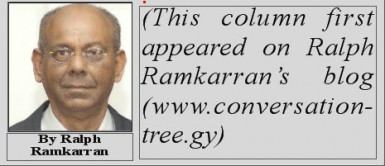 No one doubts the dire need of the city council for resources. Its current income from rates and taxes is inadequate to maintain even the basic services it now provides. The city council has had to rely on the help of the central government in the past and continues to do so. The central government may have gone along with the parking meter plan because it wanted to support the city council’s drive to increase revenue and to be itself relieved of the burden. It made a mistake.
No one doubts the dire need of the city council for resources. Its current income from rates and taxes is inadequate to maintain even the basic services it now provides. The city council has had to rely on the help of the central government in the past and continues to do so. The central government may have gone along with the parking meter plan because it wanted to support the city council’s drive to increase revenue and to be itself relieved of the burden. It made a mistake.
Many still remember the sustained campaign by the then opposition against the $2,000 fee for crossing the Berbice Bridge. One of its first acts upon entering government was to reduce those fees by way of subsidy.
In the face of government support and the opposition’s token objections, it took a while for resistance to develop. When the reality of the charges hit home it triggered the formation of the Movement Against Parking Meters (MAPM), led by some prominent citizens.
It does not take a rocket scientist to figure out that organized resistance has emerged because the fees are beyond the pockets of private car, taxi and minibus owners who travel to or move around in Georgetown to work or do business. As yesterday’s press reports, including those on Friday’s demonstration showed, big business, middle class employees, vendors and taxi drivers were all represented in the demonstration. A major concern appeared to be the dramatic reduction in retail trade for stores, shops and vendors. This should certainly invite government’s concern.
When the parking meters were installed in front of Bishops’ High School, the impact hit home. Teachers who own cars could not afford to pay $32,000 a month for eight hours a day, five days a week. Their protest succeeded.
The Ptolemy Reid Centre across the road was also spared. The Bishops’ protest indicated that resistance, built upon the silent message of empty streets, could be fruitful. The revolt does not appear to be driven by opposition to the parking meters per se, but by empty pockets. MAPM has taken the leadership of this revolt and articulated the concerns.
Newspaper reports indicate that many people have no objection to paying for parking. Many are in sympathy with the city council’s need for resources and to regulate the streets. But more modest fees, such as $40 an hour, eight hours a day, with a minimum of half an hour for $20, perhaps for an extended area, would be affordable and acceptable in the Guyanese economy. While this will still be a burden on many, Smart City Solutions (SCS) and the city council would have found more takers.
As it is, the sophisticated equipment and organization of SCS suggest that such charges would not be remunerative. It is difficult to understand how SCS and the city council could have failed to appreciate that Guyanese, in such a small city and modest economy, would not be able to bear such a heavy burden for parking and that they had the capacity to evade the charges by parking outside the metered zone and walking.
MAPM should ignore the insults of being ‘reactionaries’ and ‘rabble- rousers’ in what appears to be an advertisement in the press last week. Whoever is behind the advertisement should know that the period in our history when the insulted felt threatened and intimidated is over.
If it is SCS, it should be told that foreigners who come here to extract profits from Guyana, then insult Guyanese, will sacrifice the right to sympathy and a respectful hearing. There is a word that is used to describe people who attack anonymously, in the dark.
MAPM has a democratic right to exist and to agitate. And the people have a right to resist. Just imagine what would be the response of Americans to insults and abuse of this type against the organisers of the hundreds of thousands of Americans who marched in opposition to the Trump administration’s Muslim ban, which was promised by Trump during the election campaign. Even Trump himself didn’t dare tweet!
But MAPM’s strategy to seek a reduction in the parking fees will not work. A reduction to a sum that is affordable is not likely to be possible for SCS’s sophisticated operation. They need far higher charges than are affordable by most of the driving public, to make a profit.
And if a profit is not made, the project will fail. One sign that it might not bring the expected return is the city council’s announcement that rates and taxes will be increased by 10 per cent. MAPM’s strategy should therefore be to mobilise as many people as possible to park outside the metered area.
In our small city, the walk to work or to do business is only fifteen minutes. Facebook and demonstrations have to be supplemented by local organizing and sustained legwork.
At the same time MAPM should offer its support to the city council, should it decide to implement a less sophisticated but more affordable parking system in a wider area. Who knows? The city council might earn far more than the 20 per cent was expected to bring in.





